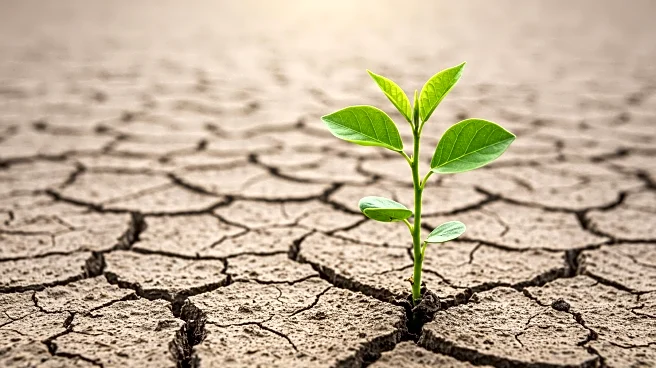What's Happening?
A recent article highlights the growing genre of climate fiction, or 'cli-fi', which is gaining recognition for its potential to inspire positive change. The genre, traditionally rooted in apocalyptic themes, is now exploring more hopeful narratives. Five novels are featured, each offering unique perspectives on environmental issues. Richard Powers' 'The Overstory' intertwines the lives of characters connected to trees, while Amitav Ghosh's 'Gun Island' addresses climate change-induced migration and environmental destruction. Octavia E. Butler's 'Parable of the Sower' imagines a future California grappling with economic and climate challenges. Barbara Kingsolver's 'Flight Behaviour' uses the migration of monarch butterflies to explore personal transformation amidst climate change. Becky Chambers' 'A Psalm for the Wild-Built' presents a utopian vision of sustainable living on a moon called Panga.
Why It's Important?
The shift towards hopeful narratives in climate fiction reflects a broader cultural movement towards optimism in addressing environmental challenges. These stories can serve as powerful tools for envisioning sustainable futures and motivating real-world action. By focusing on resilience and cooperation, these novels offer readers a sense of agency and possibility in the face of climate change. This genre's evolution may influence public discourse and policy by highlighting the potential for positive change and encouraging proactive environmental stewardship.











